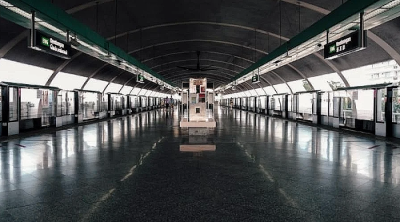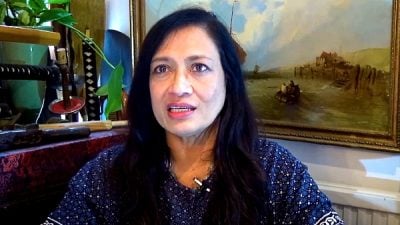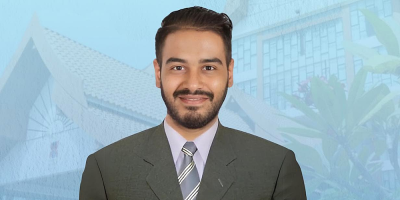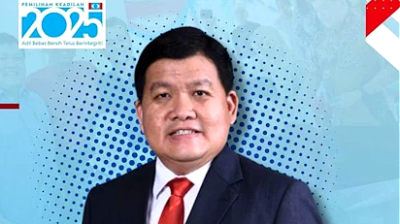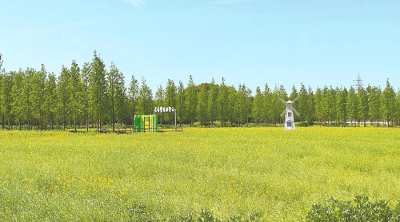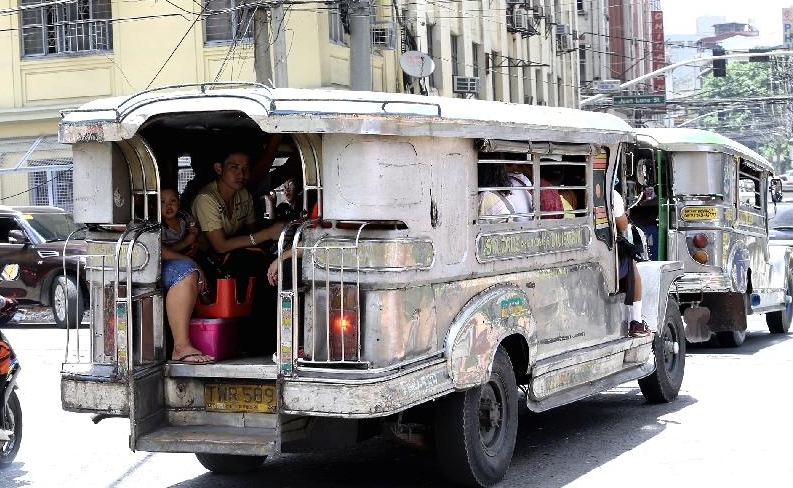
The colorful jeepney is the most popular mode of public transport in the Philippine capital, plying chaotically in Manila's crowded streets with equally chaotic and unsightly wires hanging overhead and people jostling their way on narrow sidewalks.
Fortunately it was a Sunday morning when we were there, and we were spared the ubiquitous traffic jam. It only took us 40 minutes to reach Bulacan north of the city.
We drove into a narrow alley flanked by incongruous local residential houses, with multi-storey bungalows interspersed by dilapidated single-storey wooden abodes, blurring the boundary between the impoverished and the city's affluent middle class.
The car stopped in front of a three-storey mansion. We walked down the car and looked around us, and saw Tai Pooi Yee walking out of a single-storey house not too far away.
"My husband and son are in my mother-in-law's house. They know you are coming today and make the house ready for us."
She later opened the gate of the three-storey bungalow and took us inside.
The house is not really very big, but is tastefully appointed. Tai's wedding and family photos can be seen everywhere inside the house. There is a bakery room behind the house which she and her husband would use to bake bread for sale to local schools.
Linguistic advantage
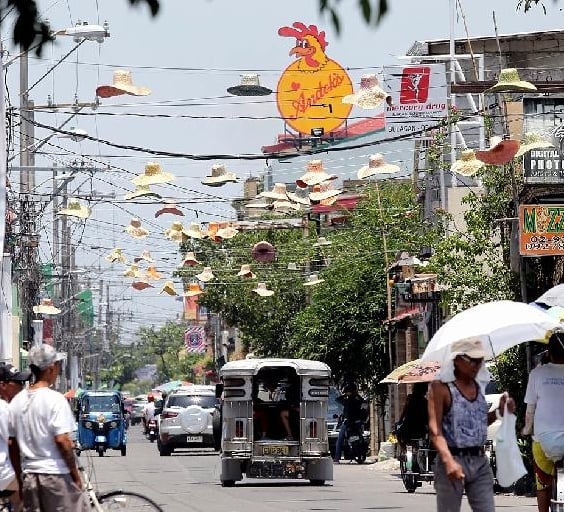
In 2011, Tai was sent by her ex-company for training in Thailand, where she met her husband Gene who also attended the same training course. The couple later kept in touch, and fell in love with each other.
Arriving in a completely different country, Tai had no friends or relatives by her side when she needed some help. She had to start everything from scratch. It took he tremendous courage for her to make up her mind.
Tai admitted that she was initially unsure but after much consideration and discussion, she and her husband agreed unanimously that the Philippines was a better place for them to start a new life together.
"My husband speaks only English and Tagalog. He is doing marketing and if he were to move to Malaysia, I think his career chances are not too good. But in the Philippines, he already has a house and he told me before marriage that it would be alright for me to just stay home and not to work."
She said because she did not have great career achievements in Malaysia that she didn't feel scared to start everything anew.
She used to be a research personnel at a food processing company back in Malaysia, but here in the Philippines, she is in customer service, albeit also in a renowned local food company.
"Mainly because I speak Mandarin and the company needs someone who speaks Mandarin to support their Chinese suppliers. I am responsible for liaising with our Chinese clients."
Language competency could be a potent weapon and a Malaysian well versed in several languages has an added advantage in the Philippines, especially with her fluent Mandarin and Cantonese.
"I can actually find the same nature of job but the pay is poorer. You will be very popular if you command more than two languages in this country.
"They have something called language subsidy here. I can speak Mandarin and I get it, and this subsidy can be higher than basic salary."
They average monthly pay is around 20,000 to 30,000 pesos (about RM1,615 to RM2,422) and can be tripled or even quadrupled with language subsidies. Because of such a difference, engineers and other professionals have opted to become her colleagues instead.
"My monthly pay now is about 90,000 pesos (about RM7,200). I used to have an offer that requires Cantonese proficiency and pays double as much, but I have rejected it as it is too far from my house."
Daily commutes
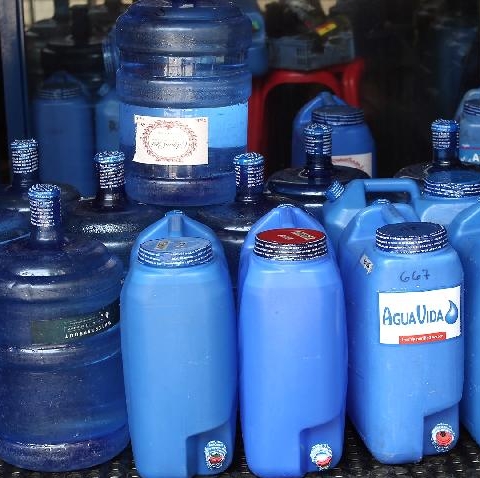
Tai's first job in Manila started at 8.30 each weekday morning, but she had to wake up at five to take a metro train to work.
"In Manila the sun is up a little past five, and many people were already lining up at the metro station. If I reached the station at six, I might have to queue up on the roadside outside the station. The evening commute was equally challenging. Both metro and buses here are packed to the brim."
She once had the experience of waiting two to three hours to get into a metro train on the eve of a long weekend holiday.
This explains why she would rather choose a company closer to home than another paying more but is much further from home.
"Now I have a small car mainly because of the very congested and narrow roads here. It will be tough for me to drive a big car here. Now it only takes me some 30 minutes driving to office. The same trip took two to three hours by public transport."
"I have noted that things have changed lately. We begin to see highways and traffic congestion has somewhat improved."
Wealth gap
When it came to lunch time, Tai took us to her husband's single-storey family house a short walk away. There were two rather high terraces at the gate.
Tai explained, "We have typhoons and earthquakes in the Philippines and this place can get flooded quite often. The floodwater was at waist height several years ago. So we built the house higher up."
She pointed at the ceiling inside the house. "Look, we don't even have ceiling fans because of earthquake."
Entering the house, we proceeded first to the kitchen to greet Tai's mother-in-law. She nodded smilingly to us before continuing her lunch preparation with the help of a maid.
Other than the kitchen help, we also saw a babysitter playing with Tai's son. In addition, there would be another temporary worker doing the ironing work three times a week. These maids on average draw about 5,000 pesos a month (about RM403) each, very affordable for a middle class household like Tai's.
But are daily necessities cheap in the Philippines?
"Not really. Things are not cheaper here than in Malaysia. Given the relatively low salaries of most people, life could be quite tough for them."
A small bottle of milk costs around RM6, and a small bottle of Coke RM2.40. Considering the consumption power of local people, many things are made available in smaller packets.
"In a sari sari (grocery) store, you can see shampoo and washing powder in small packets. If you don't have much money but need something, you can still get it in loose packing here. But this also gives rise to pollution problem with so many discarded plastic bags choking the drains and sewer pipes, causing serious floods when the typhoon comes."
To her, this country is becoming better nowadays such as a remarkable reduction in plastic usage in favor of biodegradable bags.
Despite the marked wealth disparity, the Philippine government is working very hard to improve the country to make it more attractive to foreign investors in order to increase employment opportunities for the local people.
Tai is upbeat about the country's future although she and her husband still keep their son, Carson's Malaysian citizenship.
"Having a Malaysian passport is at least more convenient."
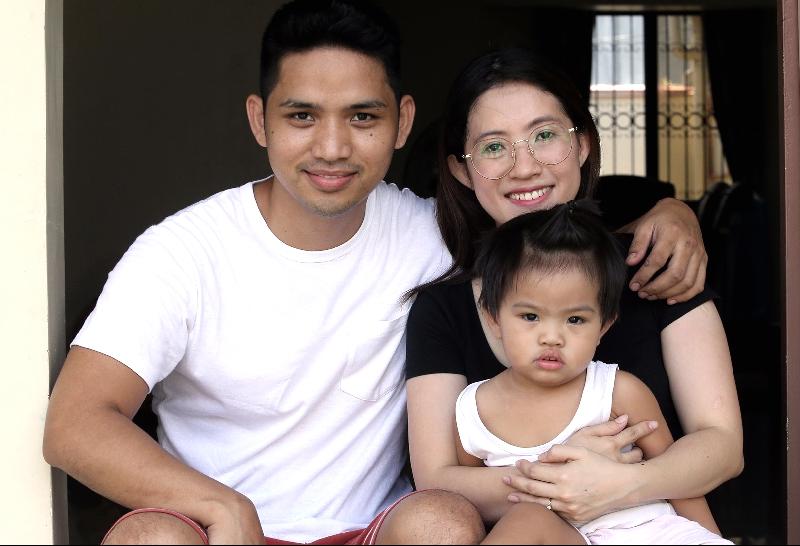
ADVERTISEMENT
ADVERTISEMENT






